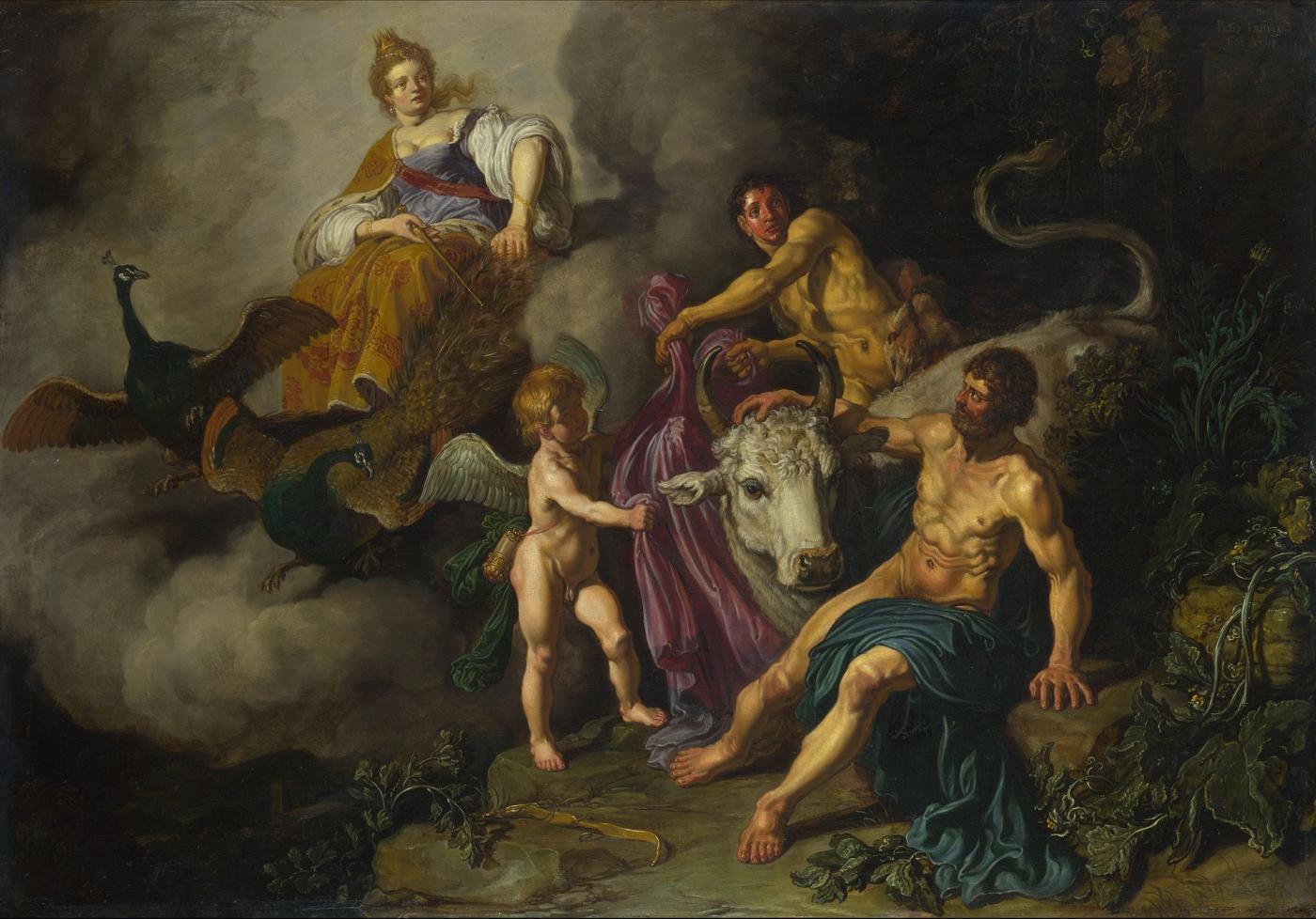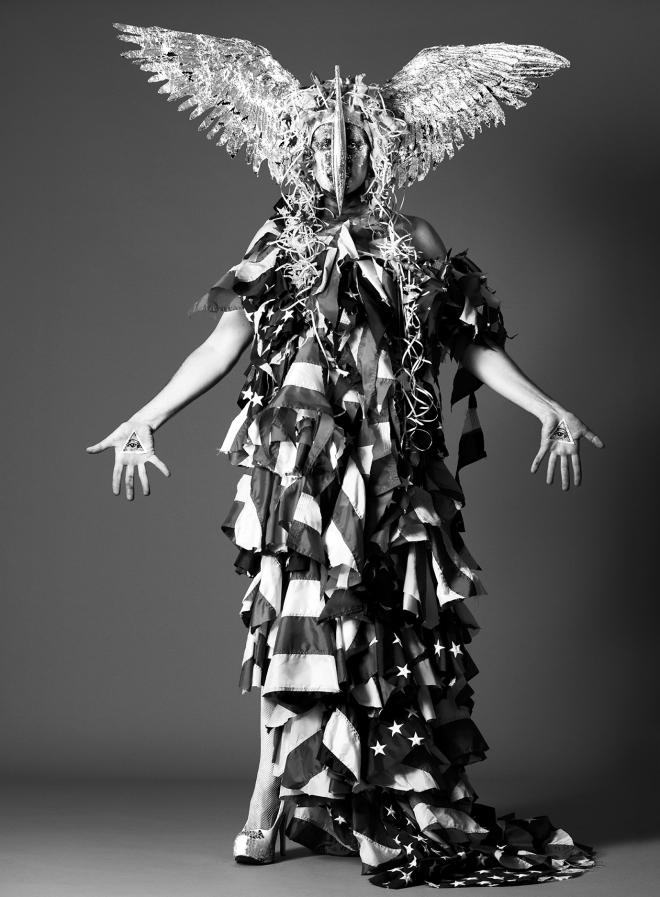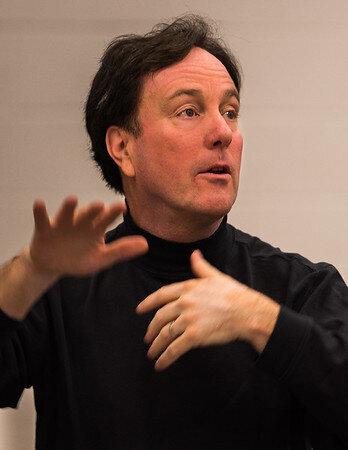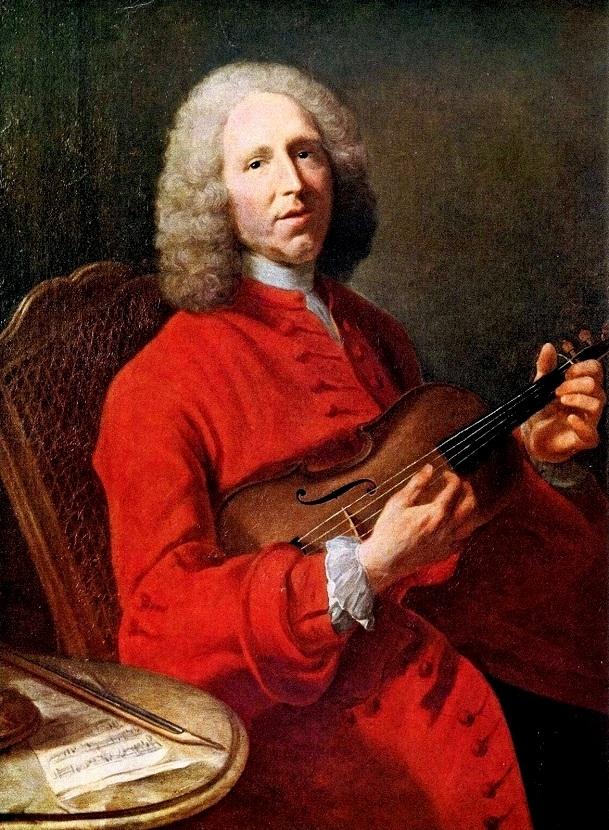Io was one of the many nymphs unlucky enough to be so beautiful that she attracted the attention of the gods, a situation which never ends well. Depending on which version of the story you encounter, she was the object of a rivalry between Zeus and Apollo, and Zeus prevailed - just to transform her into a heifer in an attempt to protect her from the wrath of his jealous wife Hera, which didn't work; she tormented poor Io with horseflies, whose constant stinging impelled her to a life of constant wandering.
This story can be read as either tragedy or comedy, and it is to Aeschylus's credit that he takes the story very seriously in one of his most celebrated tragedies, Prometheus Bound, in which her plight is compared to that of the chained title character in what is certainly the greatest scene in Western dramatic literature between a god and a cow, both victims of Zeus's tyrannical whims.
But Jean-Philippe Rameau, the greatest French opera composer of the 18th century, apparently decided to take the comic approach to this myth in his unfinished one-act opéra-ballet titled simply Io. In the material that survives, Apollo and Jupiter both disguise themselves as shepherds to vie for Io's affections, Jupiter wins her heart and reveals his identity, and the fragment ends just as a tantalizing allegorical character enters, La Folie (Madness), describing the chaos Parnassus has descended into in Apollo's absence.
We'll never know for certain where Rameau intended to take the story from there (or whether there is any bovine element), but Sylvie Bouissou, one of the greatest living Rameau scholars and the foremost editor of the critical edition of his complete works, has an idea, which will be realized by Opera Lafayette May 2 and 3 at the Kennedy Center's Terrace Theatre in what will be a very rare event: the world premiere of an opera by a major Baroque composer, which as far as can be determined has never been performed or recorded in any form, not even during Rameau's lifetime. In completing the work, Ms. Bouissou drew on music from another Rameau comic opera, Platée, which also has roles for Jupiter, La Folie, and an unhappy nymph-turned-plaything of the gods.
The costume designer for Io will be Machine Dazzle (you can see examples of his extraordinary work here.) According to Opera Lafayette's founder and artistic director Ryan Brown, “Nothing quite prepared me for the sheer joy of seeing Machine’s work in person; it’s imaginative, extravagant, and thoroughly American in the way he uses ordinary objects to extraordinary effect.”
This will be the final production of Opera Lafayette's current season dedicated to the artistic legacy of the salons of Madame de Pompadour. Sharing the bill with Io will be the modern premiere of Pierre de La Garde’s Léandre et Héro, a lyric drama in which M. de Pompadour herself performed.
I recently had the chance to ask Mr. Brown a few questions about this production.
James Jacobs: The fact that it’s still possible to unearth a previously unknown work by a composer as celebrated as Rameau shows that our understanding of the French Baroque is still very much a work in progress. How did Io manage to slip under the radar for nearly three centuries, and what about it inspired you to finally bring it to light?
Ryan Brown: I think now that Rameau’s completed works have finally been performed, scholars are turning to his incomplete ones. Io, however, may in fact be much more complete than was originally thought! (More on this below.) As Opera Lafayette explores the world of French comedic operas (both opéra-ballets and opéra-comiques), Io was a natural choice because of its symbiotic relationship with Platée, the most performed of Rameau’s comedies. Also, Io and Platée coincide with the beginning of Louis XV’s long relationship with Madame de Pompadour, who would become the most influential patron of the arts in France during this period.
JJ: To what extent were you inspired by the myth of Io? Are there aspects of the story that you find particularly harmonious with Rameau’s style, or resonant for a modern audience?
RB: The sight of two gods vying for a mortal, taking on disguises, and everyone trying to fool or dissemble in front of everyone else was too good to pass up, and the entrance and celebration of Folly a fitting metaphor for the whole, not to mention our times………
JJ: Is there any possibility that Rameau did complete Io and only a portion of the score survived, or do we know that he abandoned the work?
RB: Yes, it is highly likely, and Sylvie makes an excellent case for the possibility that all of the rest of Io is contained in Platée - that he simply set this one act Io aside and transformed the plot into Platée when commissioned for a full 3 act work for a royal occasion at Versailles. As you mention, we have the libretto and music through the entrance of La Folie, which is the beginning of the divertissement with the entrance of Graces, Pleasures, and Games and the dance. What’s so thrilling to discover is that the great aria of La Folie from Platée (about Daphne being chased unsuccessfully by Apollo) actually fits the plot of Io even better, as a metaphor for Apollo’s lack of romantic success with Io. It also demonstrates La Folie’s turning the world (through the world of music) upside down, in that she takes a sad text and makes it funny. And Folie’s next aria (found in versions of Platée not usually heard) takes a funny text and makes it sad! This wonderful, humorous, and topsy-turvy view of the world, plus the disguises required, has made our collaboration with Machine Dazzle such a felicitous one. Also, given the light, imaginative and often gender-fluid approach of the Rococo in the 18th century, it’s great to have an artist with similar approach from the 21st century help us interpret this congenial work from the past.
JJ: Will there be cows?
RB: No cows (sigh) unless Machine surprises us yet again (!), but Io is also the name of a moth, and you’ll see references to that in some of the costumes.
JJ: Tell us about Pierre de La Garde and Léandre et Héro.
RB: It’s a more sincere story about love, in which water, a storm, and the god Neptune play a huge role. The water is portrayed in our production by the Seán Curran Dance Company, and the people on land, by the New York Baroque Dance Company, dancing first separately, then together. Both operas are being directed (brilliantly) by Nick Olcott.
JJ: Remind us of the nature of M. de Pompadour's salons, how she would have participated in its musical performances, and how this program would have fit into her cultural mission.
RB: The thing about Io that fits with Madame de P’s relationship to the King is that she was from the Bourgeoisie. The opera is about the god Jupiter (read Louis XV) finding happiness with a ‘lesser’ figure like the nymph Io (read Madame de P). This was a metaphor that Madame de P liked to commission and put on stage in the salons that the King and various favorites were able to attend. And the fact that she usually performed the role of the female lover, as in Léandre et Héro, made her not only the center of attention during the performances, but made the ‘message’ of the opera perfectly clear to all. She was an extremely well-trained artist, who, though known for patronizing the decorative arts which characterized the Rococo, pushed some progressive social ideas and even musical styles forward. And this in the wake of great resistance and resentment from other parts of the court.
JJ: Do you have any more world premieres planned for Opera Lafayette's upcoming seasons?
RB: YES! Next season we continue our exploration of early French comedy with the modern premiere of Mouret’s Fêtes de Thalie, a reaction to the dour and somewhat pedantic nature of the Era of Madame de Maintenon and the last years of Louis XIV’s reign. This story, in which women (girl, widow, and wife in each successive act) get the better of the men in their lives, fits with our own contemporary reassessment of the relations between the sexes, and the liveliness of the alternation of sung music with dance makes the stories very easy to follow.
PBS PASSPORT
Stream tens of thousands of hours of your PBS and local favorites with WETA+ and PBS Passport whenever and wherever you want. Catch up on a single episode or binge-watch full seasons before they air on TV.



